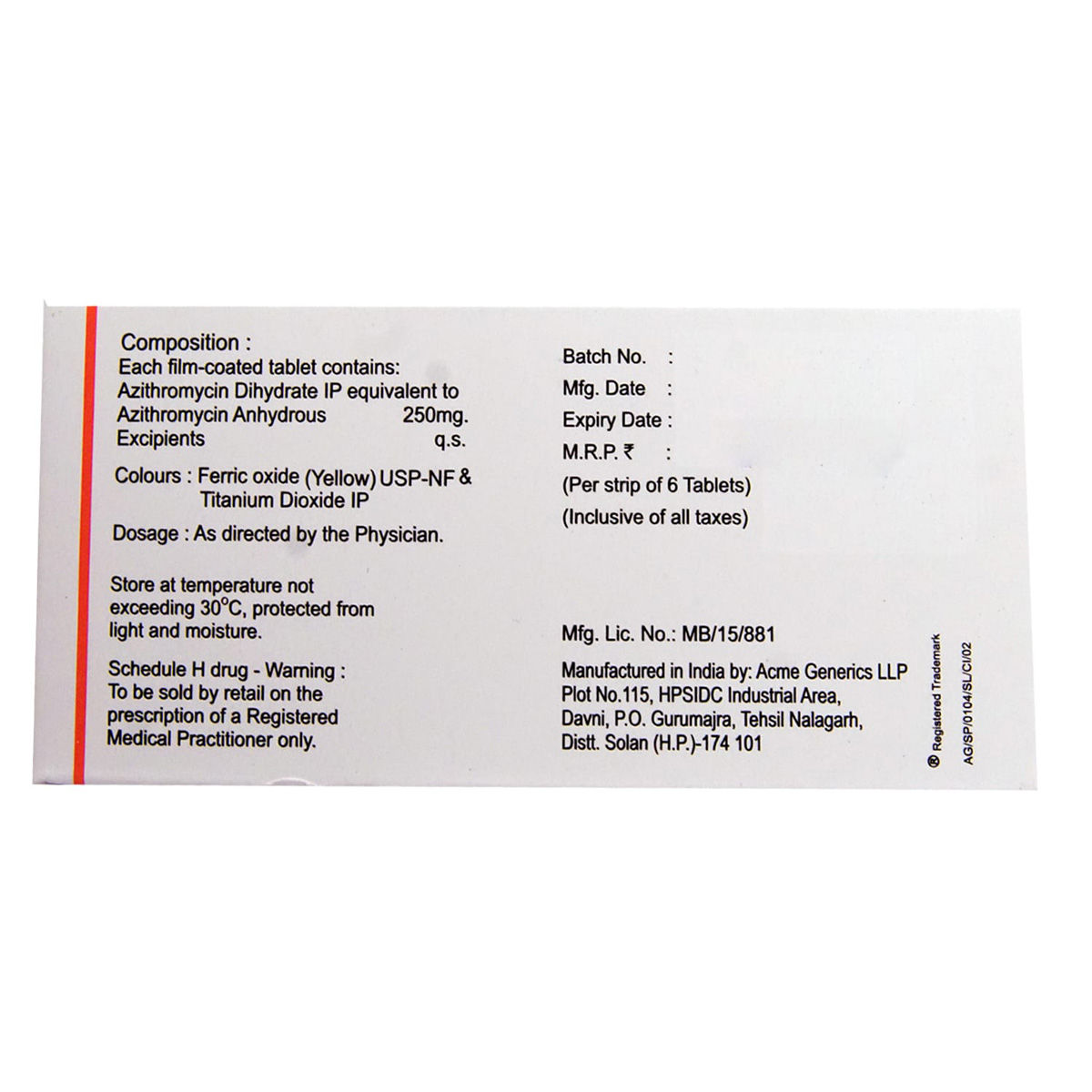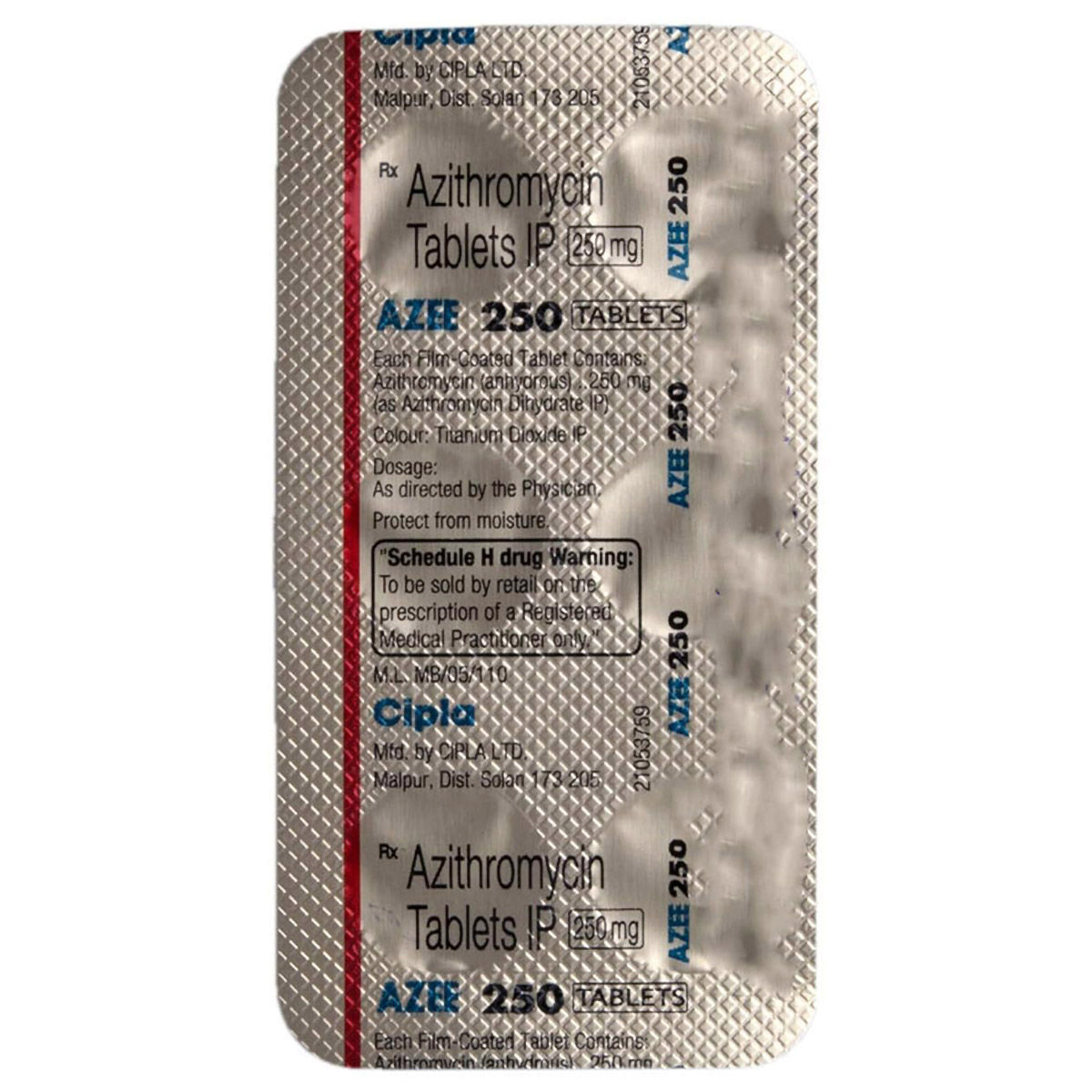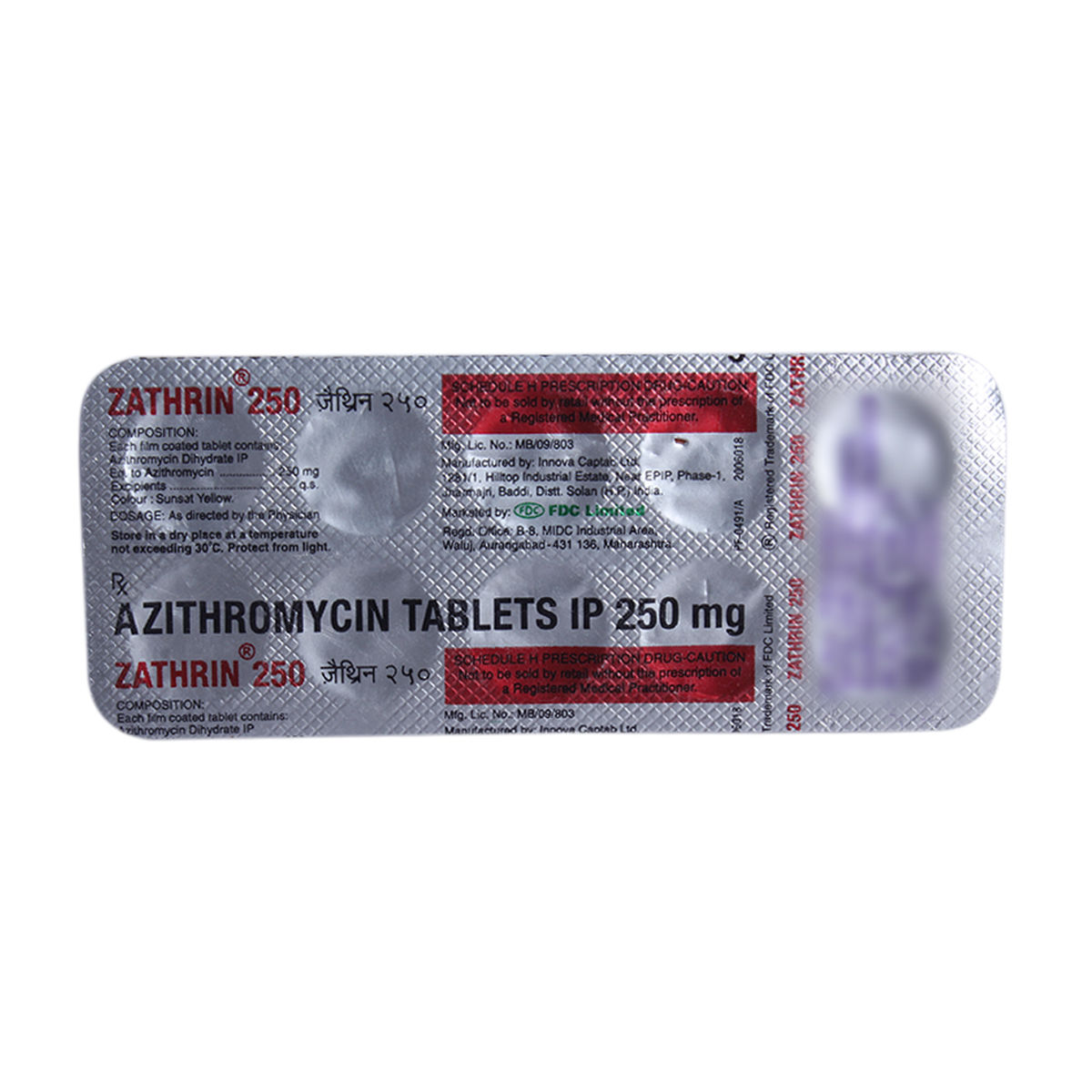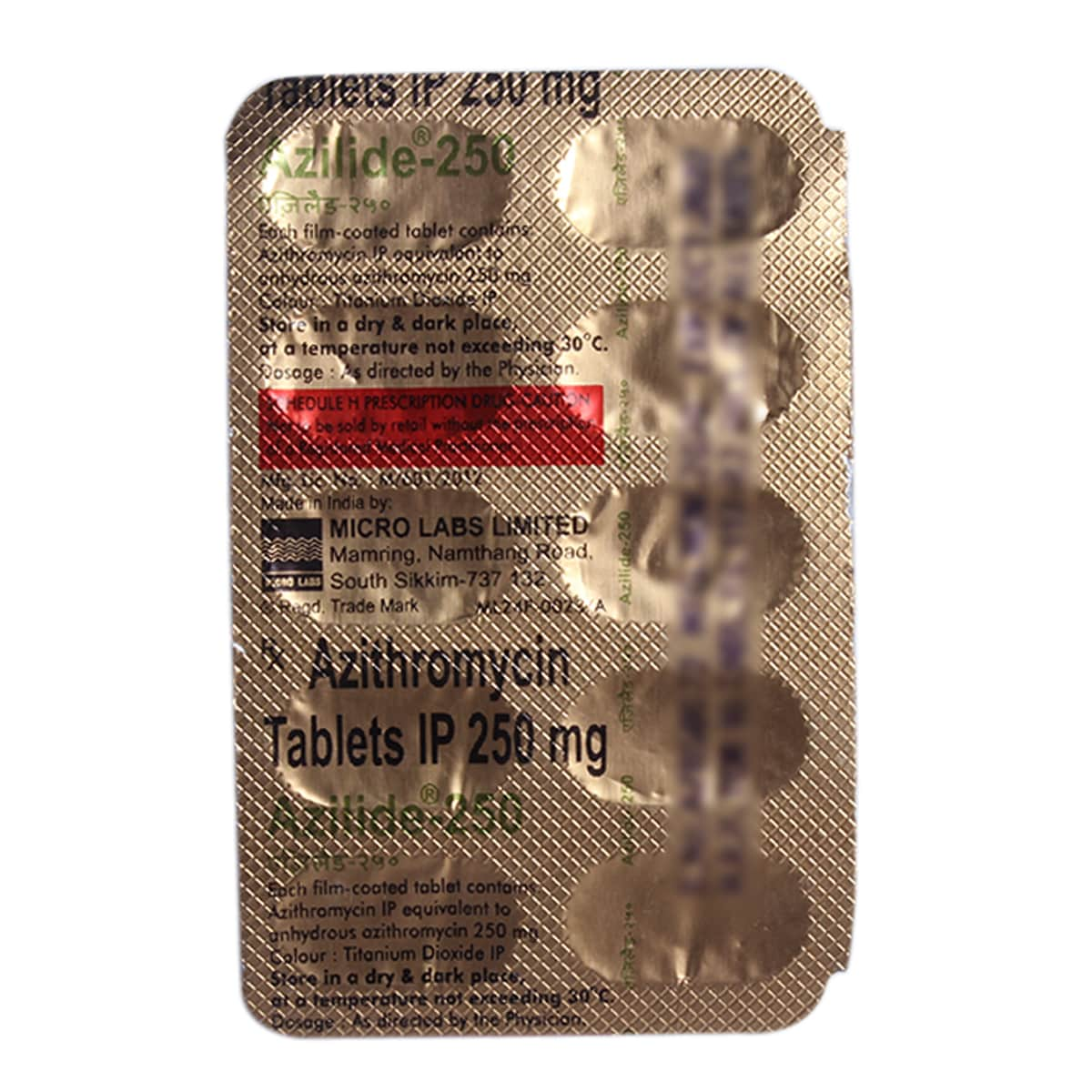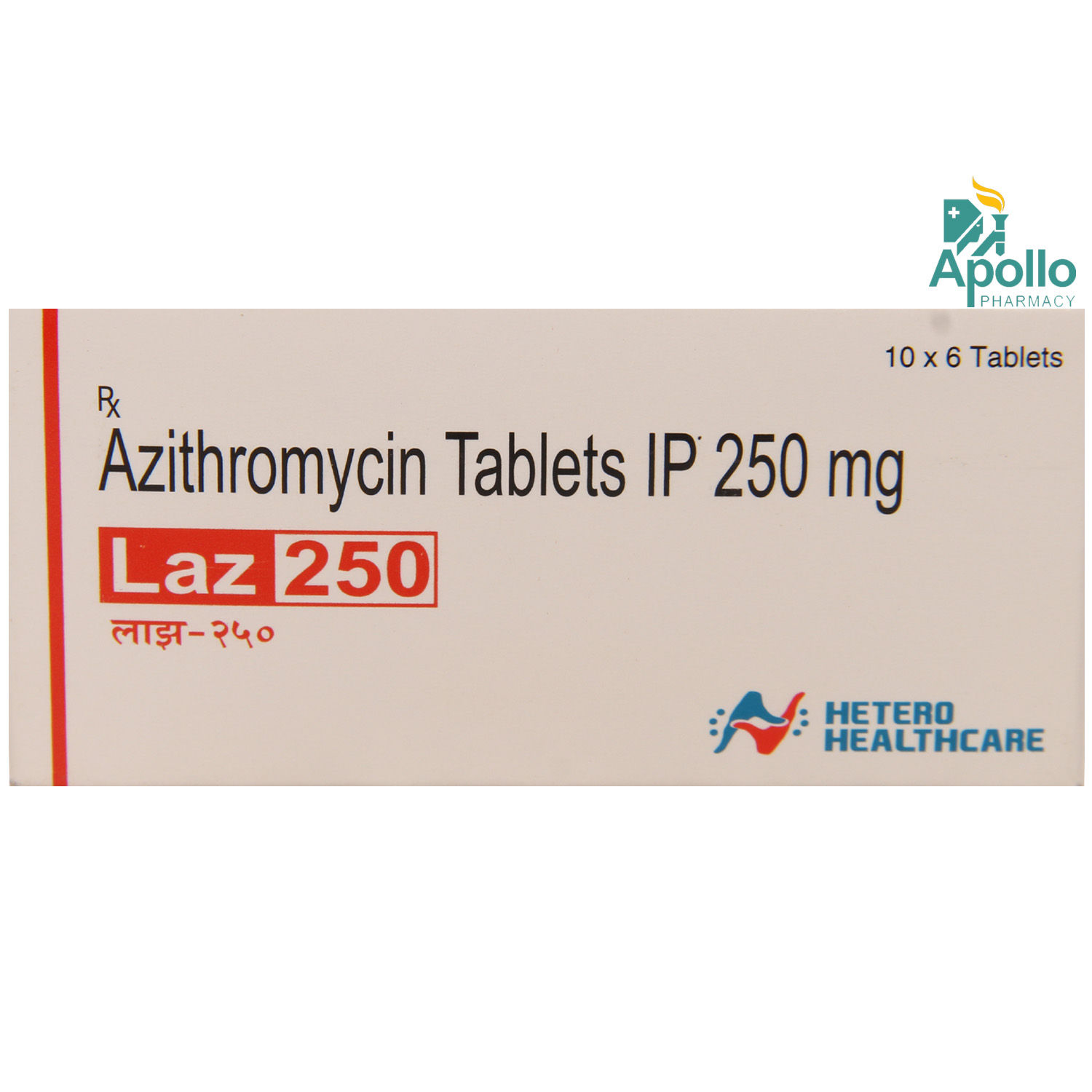Azithral 250 mg DT Tablet 5's

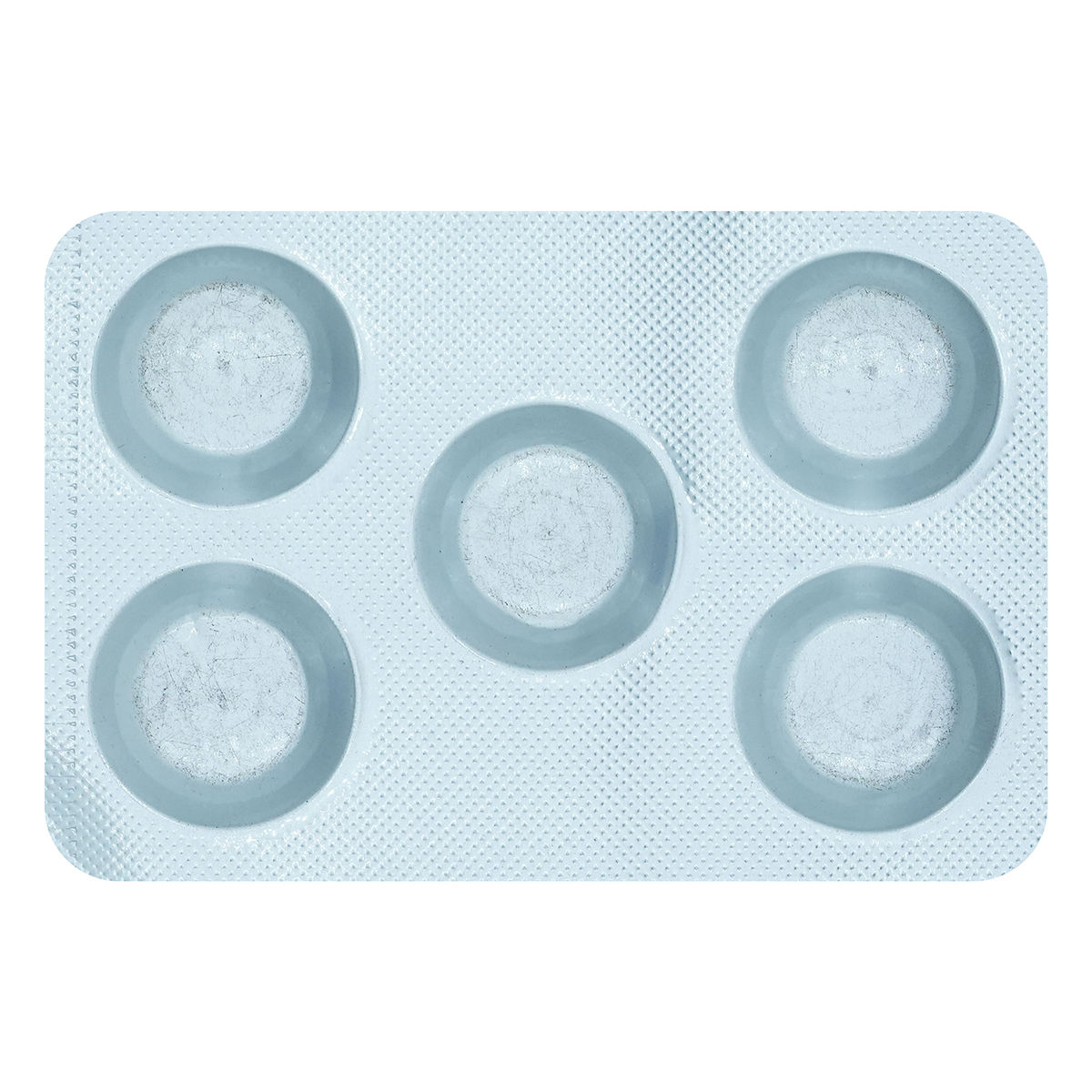
₹65
(Inclusive of all Taxes)
₹9.8 Cashback (15%)
Azithral 250 mg DT Tablet is used to treat various bacterial infections such as respiratory system (like pneumonia, bronchitis, tonsillitis, pharyngitis and sinusitis), skin infections (like acne and rosacea), ear infections, and sexually transmitted infections. It contains Azithromycin, which stops the growth of bacteria. It may cause some common side effects such as diarrhoea, nausea, vomiting, and indigestion. Before taking this medicine, you should tell your doctor if you are allergic to any of its components or if you are pregnant/breastfeeding, and about all the medications you are taking and pre-existing medical conditions.
Know Your Delivery Time
Provide Delivery Location
 Prescription drug
Prescription drugWhats That
 28 people bought
28 people bought 
Secure Payment

India's Most Trusted Pharmacy

Genuine Products
Composition :
Manufacturer/Marketer :
Consume Type :
Return Policy :
Expires on or after :
NPPA :
About Azithral 250 mg DT Tablet
Azithral 250 mg DT Tablet is an antibiotic used to treat various bacterial infections such as the respiratory system (like pneumonia, bronchitis, tonsillitis, pharyngitis and sinusitis), skin infections (like acne and rosacea), ear infections, and sexually transmitted infections. A bacterial infection is a condition in which bacteria grow in the body and cause an infection. It can target any body part and multiple parts very quickly.
Azithral 250 mg DT Tablet slows the growth or sometimes kills the harmful bacteria by preventing the production of proteins required by the bacteria for its survival. Azithral 250 mg DT Tablet does not treat a viral infection like the flu or a common cold.
Azithral 250 mg DT Tablet should only be taken if advised by your doctor. Some common side effects of Azithral 250 mg DT Tablet are diarrhoea, nausea, vomiting, and indigestion. An allergic reaction, such as rashes, itching, swelling, and shortness of breath, can occur in rare cases. Please consult your doctor if an allergic reaction becomes severe.
Tell your doctor if you have liver problems, muscle problems (myasthenia gravis), heart rhythm disorder (arrhythmia), or electrolyte imbalance (low potassium or magnesium level). You should consult a doctor if you have had diarrhoea for more than four days. However, do not take any anti-diarrheal medicine until your doctor tells you. It is unknown whether Azithral 250 mg DT Tablet harms the baby or passes into breast milk during pregnancy and breastfeeding. Contacting a doctor before using Azithral 250 mg DT Tablet during pregnancy and while breastfeeding is better.
Uses of Azithral 250 mg DT Tablet
Azithral 250 mg DT Tablet is used in the treatment of bacterial infections. The detailed uses of Azithral 250 mg DT Tablet are as follows:
- Treatment of Bacterial Infections: Azithral 250 mg DT Tablet is commonly prescribed for managing bacterial infections, including respiratory tract infections such as pneumonia and bronchitis.
- Skin and Soft Tissue Infections: Azithral 250 mg DT Tablet effectively treats skin conditions like cellulitis and other soft tissue infections caused by bacteria that respond to this medication.
- Sexually Transmitted Infections (STIs): Azithral 250 mg DT Tablet is widely used in the treatment of STIs such as Chlamydia and gonorrhea, due to its efficacy against the bacteria responsible for these diseases.
- Ear Infections (Otitis Media): Azithral 250 mg DT Tablet is also employed in the treatment of otitis media, a middle ear infection often seen in children, to alleviate symptoms and combat the infection.
Directions for Use
- Azithral 250 mg DT Tablet can be taken with or without food or as advised by your doctor.
- Follow your doctor's instructions on the dosage and timing of this medication.
- Disperse the tablet in the prescribed amount of water and swallow the contents.
- Do not crush, break, or chew it.
Medicinal Benefits
Azithral 250 mg DT Tablet slows the growth or sometimes kills the harmful bacteria by preventing the production of proteins required by the bacteria for their survival. It prevents and treats bacterial infections like throat and sinus infections, chest infections (like bronchitis and pneumonia), ear infections, mouth and dental infections, eye infections, skin and tissue infections (like acne), and stomach and intestinal infections. It is better tolerated and has more effective tissue penetration than other similar antibiotics like erythromycin. Doctors prescribe Azithral 250 mg DT Tablet for people who are intolerant to penicillin antibiotics. Besides this, it also helps prevent infection following burns, surgery or dental procedures, sexually transmitted infections, bone infections or scarlet fever (bacterial illness with strep throat).
How Azithral 250 mg DT Tablet Works
Storage
- Inform Your Doctor: Notify your doctor immediately about your diarrhoea symptoms. This allows them to adjust your medication or provide guidance on managing side effects.
- Stay Hydrated: Drink plenty of fluids to replace lost water and electrolytes. Choose water, clear broth, and electrolyte-rich drinks. Avoid carbonated or caffeinated beverages to effectively rehydrate your body.
- Follow a Bland Diet: Eat easy-to-digest foods to help firm up your stool and settle your stomach. Try incorporating bananas, rice, applesauce, toast, plain crackers, and boiled vegetables into your diet.
- Avoid Trigger Foods: Steer clear of foods that can worsen diarrhoea, such as spicy, fatty, or greasy foods, high-fibre foods, and dairy products (especially if you're lactose intolerant).
- Practice Good Hygiene: Maintain good hygiene to prevent the spread of infection. To stay healthy, wash your hands frequently, clean and disinfect surfaces regularly, and avoid exchanging personal belongings with others.
- Take Anti-Diarrheal Medications: If your doctor advises, anti-diarrheal medications such as loperamide might help manage diarrhoea symptoms. Always follow your doctor's directions.
- Keep track of your diarrhoea symptoms. If they don't get better or worse or are accompanied by severe stomach pain, blood, or dehydration signs (like extreme thirst or dark urine), seek medical help.
- Inform Your Doctor: Notify your doctor immediately about your diarrhoea symptoms. This allows them to adjust your medication or provide guidance on managing side effects.
- Stay Hydrated: Drink plenty of fluids to replace lost water and electrolytes. Choose water, clear broth, and electrolyte-rich drinks. Avoid carbonated or caffeinated beverages to effectively rehydrate your body.
- Follow a Bland Diet: Eat easy-to-digest foods to help firm up your stool and settle your stomach. Try incorporating bananas, rice, applesauce, toast, plain crackers, and boiled vegetables into your diet.
- Avoid Trigger Foods: Steer clear of foods that can worsen diarrhoea, such as spicy, fatty, or greasy foods, high-fibre foods, and dairy products (especially if you're lactose intolerant).
- Practice Good Hygiene: Maintain good hygiene to prevent the spread of infection. To stay healthy, wash your hands frequently, clean and disinfect surfaces regularly, and avoid exchanging personal belongings with others.
- Take Anti-Diarrheal Medications: If your doctor advises, anti-diarrheal medications such as loperamide might help manage diarrhoea symptoms. Always follow your doctor's directions.
- Keep track of your diarrhoea symptoms. If they don't get better or worse or are accompanied by severe stomach pain, blood, or dehydration signs (like extreme thirst or dark urine), seek medical help.
- Drink water or other clear fluids.
- To prevent worsening of pain, limit intake of tea, coffee, or alcohol.
- Include bland foods like rice, toast, crackers, and rice in your diet.
- Avoid lying down immediately after eating as it may cause indigestion or heartburn.
- Avoid acidic and spicy food as it may cause indigestion.
- Consume more fruits, vegetables, and cruciferous foods like cabbage, kale, and broccoli.
- Reduced alcohol intake can enhance liver enzyme function.
- Oxidative stress can be managed by eating foods rich in antioxidants, such as vitamins C and E.
- Liver function tests regularly can help manage increased levels of AST.
- To improve liver health and aid in the removal of toxins, drink lots of water.
- Alcohol consumption should be reduced or stopped because it can raise ALT levels and impair liver function.
- Consume a well-rounded diet full of whole grains, fruits, and vegetables. Limit items that strain the liver, such as processed, fatty, or fried foods.
- You can monitor your ALT levels and make treatment modifications with the support of routine blood tests.
- Include lean proteins like skinless poultry and fish.
- Choose whole grains and low-fat dairy products.
- Limit intake of fat and oil.
- Stay hydrated by drinking plenty of water.
- Restrict heavy sugar intake.
- Avoid red meat, processed foods, and refined sugar.
- Eat more fruits and vegetables.
- Stay hydrated by drinking plenty of water.
- Low bicarbonate levels can lead to more acid buildup in your blood, so your doctor may administer sodium bicarbonate through an IV to help balance it.
- Drink lots of fluids or water to reduce acid load in your blood, and make sure your urine is clear or light yellow.
- Limit alcohol intake, as it can dehydrate you and increase acid buildup.
- If you are diabetic, keep your blood sugar levels in a healthy range.
- Eat high-alkaline foods, like fruits, nuts, legumes, and vegetables.
- Avoid foods that can cause your body to produce more acids, including eggs, meats, cheese, and grains.
What if I have taken an overdose of Azithral 250 mg DT Tablet
Drug Warnings
Tell your doctor if you have liver problems (jaundice), muscle problems (myasthenia gravis), heart rhythm disorder (arrhythmia), or electrolyte imbalance (low potassium or magnesium level). In rare cases, the use of Azithral 250 mg DT Tablet can cause diarrhoea, so if you have watery or bloody diarrhoea, stop taking Azithral 250 mg DT Tablet and call your doctor. However, do not take any anti-diarrheal medicine until your doctor tells you. It is unknown whether Azithral 250 mg DT Tablet harms the baby during pregnancy. Consult your doctor if you are pregnant, planning for pregnancy or breastfeeding before using Azithral 250 mg DT Tablet. Do not take Azithral 250 mg DT Tablet if allergic to azithromycin or other macrolide antibiotics. Inform the doctor if you are using cholesterol-lowering drugs (statins like simvastatin, lovastatin, etc.), anti-gout or anti-arthritis drugs (colchicine) and medicine for treating an overactive bladder (tolterodine). Azithral 250 mg DT Tablet is not recommended for patients with pneumonia who are judged to be inappropriate for oral therapy due to moderate to severe illness or risk factors. Avoid too much exposure to sunlight as Azithral 250 mg DT Tablet can make your skin sensitive to sunburn. In this case, it is advisable to wear protective clothing or apply sunscreen (SPF 30 or higher) when you are outdoors.
Drug-Drug Interactions
Drug-Drug Interactions
Login/Sign Up
Co-administration of Azithral 250 mg DT Tablet with Ziprasidone can increase the risk of irregular heart rhythm.
How to manage the interaction:
Although there is an interaction between Ziprasidone and Azithral 250 mg DT Tablet but can be taken together if prescribed by a doctor. Contact a doctor immediately if you experience sudden dizziness, lightheadedness, fainting, shortness of breath. Do not discontinue any medications without consulting a doctor.
Co-administration of Bisacodyl and Azithral 250 mg DT Tablet together can increase the chance of a serious abnormal heart rhythm.
How to manage the interaction:
Although there is an interaction, Bisacodyl can be taken with Azithral 250 mg DT Tablet if prescribed by the doctor. Consult the doctor if you develop sudden dizziness, lightheadedness, fainting, breathing difficulty, or heart palpitations, weakness, tiredness, drowsiness, confusion, tingling, numbness, muscle pain, cramps, nausea, or vomiting. Do not discontinue the medications without consulting a doctor.
Coadministration of Azithral 250 mg DT Tablet with colchicine may raise colchicine levels in the blood to undesirable levels.
How to manage the interaction:
Concomitant administration of Azithral 250 mg DT Tablet alongside colchicine can result in an interaction, but it can be taken if a doctor has advised it. Inform your doctor if you have any of the following symptoms: stomach discomfort, nausea, vomiting, diarrhea, fever, muscular pain, weakness, exhaustion, and/or numbness or tingling in your hands and feet. Do not discontinue any medications without consulting a doctor.
Taking Azithral 250 mg DT Tablet with Ivabradine increases the risk of an abnormal heart rhythm.
How to manage the interaction:
Though administration of Azithral 250 mg DT Tablet alongside Ivabradine can result in an interaction, it can be taken if a doctor has advised it. However, if you experience sudden dizziness, lightheadedness, fainting, shortness of breath, or rapid heartbeat, get medical treatment immediately. Do not discontinue any medications without consulting a doctor.
Taking Azithral 250 mg DT Tablet with iloperidone increases the risk of an abnormal heart rhythm.
How to manage the interaction:
Though administration of Azithral 250 mg DT Tablet alongside iloperidone can result in an interaction, it can be taken if a doctor has advised it. However, if you experience sudden dizziness, lightheadedness, fainting, shortness of breath, or rapid heartbeat, get medical treatment immediately. Do not discontinue any medications without consulting a doctor.
Coadministration of Azithral 250 mg DT Tablet with nilotinib can increase the risk or severity of irregular heart rhythms. The risk increases in patients with a history of heart illness or electrolyte imbalance.
How to manage the interaction:
Although administration of Azithral 250 mg DT Tablet alongside nilotinib can result in an interaction, it can be taken if a doctor has advised it. However, if you experience sudden dizziness, breathing difficulty, or rapid heartbeat, consult the doctor immediately. Do not stop any medications without a doctor's advice.
Taking Azithral 250 mg DT Tablet with anagrelide may increase the risk of an abnormal heart rhythm. If you're dealing with other cardiac illnesses, electrolyte imbalances (for example, magnesium or potassium loss likely due to serious or prolonged diarrhoea or vomiting), you may be at greater risk.
How to manage the interaction:
Although using Azithral 250 mg DT Tablet and anagrelide together can possibly result in an interaction, it can be taken if your doctor has advised it. However, if you experience sudden dizziness, lightheadedness, fainting, breathing difficulty, or rapid heartbeat, consult the doctor immediately. Do not stop any medications without a doctor's advice.
Taking Azithral 250 mg DT Tablet with clozapine can increase the chance of a serious abnormal heart rhythm.
How to manage the interaction:
Although using Azithral 250 mg DT Tablet alongside clozapine can result in an interaction, it can be taken if a doctor has advised it. However, if you experience sudden dizziness, lightheadedness, fainting, breathing difficulty, or rapid heartbeat, consult the doctor immediately. Do not stop any medications without a doctor's advice.
Taking Azithral 250 mg DT Tablet with papaverine increases the risk of an abnormal heart rhythm.
How to manage the interaction:
Although administration of Azithral 250 mg DT Tablet alongside papaverine can result in an interaction, it can be taken if a doctor has advised it. However, if you experience sudden dizziness, lightheadedness, fainting, breathing difficulty, or rapid heartbeat, consult the doctor immediately. Do not stop any medications without a doctor's advice.
Taking Azithral 250 mg DT Tablet with vandetanib increases the risk of an abnormal heart rhythm. If you're dealing with other cardiac illnesses, electrolyte imbalances (for example, magnesium or potassium loss likely due to serious or prolonged diarrhoea or vomiting), you may be at greater risk.
How to manage the interaction:
Although administration of Azithral 250 mg DT Tablet alongside vandetanib can possibly result in an interaction, it can be taken if your doctor has advised it. However, if you experience sudden dizziness, lightheadedness, fainting, breathing difficulty, or rapid heartbeat, consult the doctor immediately. Do not stop any medications without a doctor's advice.
Drug-Food Interactions
Drug-Food Interactions
Login/Sign Up
Diet & Lifestyle Advise
- It would be best to take probiotics after taking the full course of Azithral 250 mg DT Tablet to restore some healthy bacteria in the intestine that may have been killed. Taking probiotics after antibiotic treatment can reduce the risk of antibiotic-associated diarrhoea. Certain fermented foods like yoghurt, cheese, sauerkraut and kimchi can help restore the intestine's good bacteria.
- Include more fibre-enriched food in your diet, as it can be easily digested by gut bacteria, which helps stimulate their growth. Thus, fibre foods may help restore healthy gut bacteria after taking a course of antibiotics. Whole grains like whole-grain bread and brown rice should be included in your diet.
- Avoid taking too much calcium-enriched foods and drinks, as it might affect the working of Azithral 250 mg DT Tablet.
- Avoid intake of alcoholic beverages with Azithral 250 mg DT Tablet as it can make you dehydrated and affect your sleep. This can make it harder for your body to aid the Azithral 250 mg DT Tablet in fighting off infections.
Habit Forming
Therapeutic Class
Product Substitutes
Alcohol
Consult your doctor
Azithral 250 mg DT Tablet should not be taken until prescribed if you are taking alcohol. Keep your doctor informed if you drink alcohol.
Pregnancy
Consult your doctor
There is insufficient information available about the use of Azithral 250 mg DT Tablet during pregnancy. Therefore, you should not use Azithral 250 mg DT Tablet during pregnancy unless explicitly advised by your doctor.
Breast Feeding
Consult your doctor
Azithral 250 mg DT Tablet is partially passed through the mother’s milk; therefore, it should not be used if you are breastfeeding.
Driving
Consult your doctor
There are no data available about the influence of Azithral 250 mg DT Tablet on the ability to drive or operate machines. However, Azithral 250 mg DT Tablet may cause dizziness and seizures so make sure you are not affected before driving or operating machinery.
Liver
Consult your doctor
If you have liver problems, inform your doctor before taking Azithral 250 mg DT Tablet.
Kidney
Consult your doctor
If you have kidney problems, inform your doctor before taking Azithral 250 mg DT Tablet.
Children
Consult your doctor
Safety and effectiveness in the treatment of patients under 6 months of age have not been established. So, it is not recommended for children less than 6 months of age. However, if the doctor has prescribed for the children more than 6 months Azithral 250 mg DT Tablet can be used.

Have a query?
FAQs
Azithral 250 mg DT Tablet is used to treat bacterial infections such as respiratory tract infections (like pneumonia, bronchitis, tonsillitis, pharyngitis and sinusitis), skin infections (like acne and rosacea), ear infections, and sexually transmitted infections. It works by killing the harmful bacteria.
Azithral 250 mg DT Tablet slows the growth or sometimes kills the harmful bacteria by preventing the production of proteins required by the bacteria for their survival.
Do not take antacids that contain aluminium or magnesium hydroxide within 2 hours before or after you take Azithral 250 mg DT Tablet. These antacids can interact with Azithral 250 mg DT Tablet and make them less effective when taken at the same time.
Azithral 250 mg DT Tablet can cause diarrhoea, which may be a sign of a new infection. If you have diarrhoea that is watery or bloody, call your doctor. Do not use anti-diarrhoea medicine unless your doctor tells you to.
You should avoid taking Azithral 250 mg DT Tablet if you have colitis (intestine inflammation), heart rhythm disorder, liver disease (like jaundice), and muscle problem (like myasthenia gravis). Contact your doctor if you have these conditions before taking Azithral 250 mg DT Tablet.
If you forget to take Azithral 250 mg DT Tablet, take your dose as soon as possible. If it is almost time for the next dose, skip that dose and take the next one when it is due. If in doubt, please contact your doctor. Do not take a double dose to make up for a forgotten dose.
Never stop the treatment with Azithral 250 mg DT Tablet on your own, as the infection may come back again (relapse) if the prescribed treatment is not taken completely. Before stopping Azithral 250 mg DT Tablet, once discuss this with your doctor.
No, it is a Schedule H drug that can be taken only if your doctor has prescribed it. Taking it on your own or self-medication can cause unwanted side effects and lead to antibiotic resistance, thereby lowering its efficiency.
Azithral 250 mg DT Tablet is an effective antibiotic that helps treat bacterial infections. It has a broad spectrum of anti-bacterial activity and is effective against gram-positive and gram-negative bacteria.
Azithral 250 mg DT Tablet can be taken with or without food.
Azithral 250 mg DT Tablet may interact with anti-emetics, neuroleptics, migraine medicines, statins, anticholinergics and anti-gout medicines. Before starting Azithral 250 mg DT Tablet, let the doctor know if you are taking any other medicines to prevent interactions.
Side effects of Azithral 250 mg DT Tablet include diarrhoea, nausea, vomiting, and indigestion. Please consult the doctor if any of the side effects persist or worsen.
Country of origin
Manufacturer/Marketer address
Customers Also Bought
Disclaimer
Author Details
We provide you with authentic, trustworthy and relevant information
Reference
- https://greencrossindia.com/p/azigo-100-dt-tablet
- https://www.globalimpexenterprise.com/100-mg-azithromycin-dispersible-tablets-8454285.html
- https://www.indiamart.com/proddetail/azithromycin-100-mg-dispersible-tablet-2850378486833.html
- https://www.tradeindia.com/products/azithromycin-dispersible-tablets-c6639593.html
Buy best Infections & Infestation products by
Cipla Ltd
Macleods Pharmaceuticals Ltd
Alkem Laboratories Ltd
Lupin Ltd
Abbott India Ltd
Sun Pharmaceutical Industries Ltd
Mankind Pharma Pvt Ltd
Aristo Pharmaceuticals Pvt Ltd
Micro Labs Ltd
Intas Pharmaceuticals Ltd
FDC Ltd
Glenmark Pharmaceuticals Ltd
Ipca Laboratories Ltd
Zydus Healthcare Ltd
Torrent Pharmaceuticals Ltd
United Biotech Pvt Ltd
Zuventus Healthcare Ltd
Emcure Pharmaceuticals Ltd
Leeford Healthcare Ltd
Biochem Pharmaceutical Industries Ltd
Hetero Drugs Ltd
Alembic Pharmaceuticals Ltd
Dr Reddy's Laboratories Ltd
Indoco Remedies Ltd
Cadila Healthcare Ltd
Fusion Health Care Pvt Ltd
Wockhardt Ltd
Zydus Cadila
Morepen Laboratories Ltd
GlaxoSmithKline Pharmaceuticals Ltd
Cadila Pharmaceuticals Ltd
Elder Pharmaceuticals Ltd
Blue Cross Laboratories Pvt Ltd
Converge Biotech Pvt Ltd
Hetero Healthcare Pvt Ltd
AAA Pharma Trade Pvt Ltd
Gufic Bioscience Ltd
Apex Laboratories Pvt Ltd
Corona Remedies Pvt Ltd
Medishri Healthcare Pvt Ltd
Alniche Life Sciences Pvt Ltd
Mylan Pharmaceuticals Pvt Ltd
Pfizer Ltd
Vasu Organics Pvt Ltd
Wallace Pharmaceuticals Pvt Ltd
Koye Pharmaceuticals Pvt Ltd
Veritaz Healthcare Ltd
Akumentis Healthcare Ltd
Capital Pharma
Hegde & Hegde Pharmaceutica Llp
Shreya Life Sciences Pvt Ltd
Overseas Health Care Pvt Ltd
Unifaith Biotech Pvt Ltd
Klm Laboratories Pvt Ltd
Ranbaxy Laboratories Ltd
Samarth Life Sciences Pvt Ltd
Biocon Ltd
Canixa Life Sciences Pvt Ltd
Laborate Pharmaceuticals India Ltd
Lincoln Pharmaceuticals Ltd
Medley Pharmaceuticals Ltd
Pristine Pearl Pharma Pvt Ltd
Ajanta Pharma Ltd
East West Pharma India Pvt Ltd
Indchemie Health Specialities Pvt Ltd
Aurz Pharmaceutical Pvt Ltd
Brinton Pharmaceuticals Ltd
J B Chemicals & Pharmaceuticals Ltd
Natco Pharma Ltd
Unichem International
Unipark Biotech Pvt Ltd
Biochemix Health Care Pvt Ltd
Icarus Health Care Pvt Ltd
La Renon Healthcare Pvt Ltd
DR Johns Lab Pharma Pvt Ltd
German Remedies Ltd
Kepler Healthcare Pvt Ltd
Neon Laboratories Ltd
Yuventis Pharmaceuticals
Indiabulls Pharmaceuticals Pvt Ltd
Kivi Labs Ltd
Medgen Drugs And Laboratories Pvt Ltd
Megma Healthcare Pvt Ltd
Zymes Bioscience Pvt Ltd
Allites Life Sciences Pvt Ltd
Lividus Pharmaceuticals Pvt Ltd
Nicholas Piramal India Ltd
Novartis India Ltd
Linux Laboratories Pvt Ltd
Signova Pharma
Systopic Laboratories Pvt Ltd
Unison Pharmaceuticals Pvt Ltd
Zee Laboratories Ltd
Celon Laboratories Pvt Ltd
Concept Pharmaceuticals Ltd
Makronix Lifesciences Pvt Ltd
Suraksha Pharma Pvt Ltd
Alienist Pharmaceutical Pvt Ltd
Auspharma Pvt Ltd
Cachet Pharmaceuticals Pvt Ltd
Comed Chemicals Ltd
Intra Life Pvt Ltd
Khandelwal Laboratories Pvt Ltd
Knoll Healthcare Pvt Ltd
Aurobindo Pharma Ltd
Bros Enterprises Ltd
Clover Health Care Pharma
Nextgen Healthcare
Adonis Laboratories Pvt Ltd
Aequitas Healthcare Pvt Ltd
Bioshine Healthcare Pvt Ltd
Brochem Health Care Pvt Ltd
Divine Savior Pvt Ltd
Finecure Pharmaceuticals Ltd
Fresenius Kabi India Pvt Ltd
Innovative Life Sciences Pvt Ltd
Intra Labs India Pvt Ltd
Jolly Healthcare
Maneesh Pharmaceuticals Ltd
Med Manor Organics Pvt Ltd
Narankaa Pharma
Olcare Laboratories Pvt Ltd
Ozone Pharmaceuticals Ltd
Themis Medicare Ltd
Aareen Healthcare Pvt Ltd
Aglowmed Pharmaceuticals Ltd
Alna Biotech Pvt Ltd
Biological E Ltd
Biophar Lifesciences Pvt Ltd
Delcure Life Sciences Ltd
Eskon Pharma
Galpha Laboratories Ltd
Nova Indus Pharmaceuticals
Ronyd Healthcare Pvt Ltd
Systemic Healthcare
Cnx Health Care Pvt Ltd
Exquisite Pharma
Geno Pharmaceuticals Pvt Ltd
Graciera Pharmaceuticals Llp
Gufic Criti Care
Inga Laboratories Pvt Ltd
Nest Pharma
Wings Pharmacuticals Pvt Ltd
Yaher Pharma
Zota Health Care Ltd
Acclimate Life Sciences
Alvio Pharmaceuticals Pvt Ltd
Anglo French Drugs & Industries Ltd
Biocute Life Care
Coxswain Healthcare
Dey's Medical Stores (Mfg) Ltd
Dhamus Pharma
Dolvis Bio Pharma Pvt Ltd
Ernst Pharmacia
Gland Pharma Ltd
Grandcure Healthcare Pvt Ltd
Hiilsen Life Sciences Pvt Ltd
Ideal Life Sciences Pvt Ltd
Ind-Swift Ltd
Knoll Pharmaceuticals Ltd
Kristal Pharmaceuticals
Mnw Life Sciences
Prism Life Sciences Ltd
Silver Cross Medisciences Pvt Ltd
Troikaa Pharmaceuticals Ltd
Woodavens Pharmacare Pvt Ltd
Astra Zeneca Pharma India Ltd
Atopic laboratories Pvt Ltd
Biocrit Healthcare Pvt Ltd
Crescent Formulations Pvt Ltd
Deekay Lifesciences
Entod Pharmaceuticals Ltd
Eris Life Sciences Ltd
Ethinext Pharma
Foregen Healthcare Ltd
Iifa Healthcare
Ind Swift Laboratories Ltd
Indi Pharma Pvt Ltd
Jagsonpal Pharmaceuticals Ltd
Jenburkt Pharmaceuticals Ltd
Maestro Healthcare Ltd
Medi Biotech India Pvt Ltd
Medopharm Pvt Ltd
Nutraferon Pvt Ltd
Oaknet Healthcare Pvt Ltd
Pharma Plus India
Prevego Healthcare & Research Pvt Ltd
Rapross Pharmaceuticals Pvt Ltd
Regenix Drugs Ltd
Rockmed Pharma Pvt Ltd
Sunij Pharma Pvt Ltd
Symbiosis Pharmaceuticals Pvt Ltd
Univentis Medicare Ltd
Wanbury Ltd
Aionios Pharma Pvt Ltd
Algen Healthcare Ltd
Apprima Pharma
Aptus Pharma Pvt Ltd
CONCORD DRUGS LTD
Esmatrix Life Sciences Pvt Ltd
Eysys Pharmaceutical Pvt Ltd
Gnosis Pharmaceuticals Pvt Ltd
Heal (India) Laboratories Pvt Ltd
Larion Life Sciences Pvt Ltd
Larivin Pharma Pvt Ltd
Lewin Healthcare
Medford Pharmaceuticals
Medok Lifesciences
Mrl Pharma Opc Pvt Ltd
Msn Laboratories Pvt Ltd
Profic Organic Ltd
Sb Life Sciences
Shankus Acme Pharma Pvt Ltd
Stallion Lab Pvt Ltd
Syndicate Life Sciences Pvt Ltd
Warner (India) Pharma Pvt Ltd
Xperia Healthcare Pvt Ltd
Zyphar's Pharmaceuticals Pvt Ltd
Arvincare
Astrica Biomedics Pvt Ltd
Axenic Healthcare
Clyde Pharmaceutical Pvt Ltd
Concord Biotech Ltd
Femgrace Formulations
Finnmed Biotech Pvt Ltd
Galcare Pharmaceuticals Pvt Ltd
Genix Pharma Hetero Drugs Ltd
Gujarat Terce Laboratories Ltd
Hauz Pharma Pvt Ltd
Isis Healthcare India Pvt Ltd
Jasvas Biologicals Pharma Pvt Ltd
Megha Healthcare Pvt Ltd
NuLife Pharmaceuticals
Piramal Enterprises Ltd
Questus Pharma Pvt Ltd
RB Pharmaceuticals
Sanatra Healthcare Ltd
Sanify Healthcare Pvt Ltd
Sanofi India Ltd
Servo Healthcare Solutions Pvt Ltd
Skn Organics Pvt Ltd
Swiss Pharma Pvt Ltd
Venus Remedies Ltd
Walnut Pharma Pvt Ltd
Wilburt Remedies Pvt Ltd
Zaurac Healthcare
Bal Pharma Ltd
Baxton Pharmacia Pvt Ltd
Bio Warriors Pharmaceucticals Pvt Ltd
Biotics Lab
Bonsai Pharma
Dawson Healthcare Pvt Ltd
Dermacia Healthcare
Dr Moni Pharmaceuticals Pvt Ltd
East India Pharmaceutical Works Ltd
Ergos Life Sciences Pvt Ltd
Feron Health Care Pvt Ltd
Galengen Lifesciences Pvt Ltd
Glenon Healthcare
Glowderma Lab Pvt Ltd
Goldline Pharmaceuticals
Grapple Life Sciences Pvt Ltd
Gromax Healthcare Pvt Ltd
Gufic Pvt Ltd
Henry Pharmaceuticals
Iceberg Health Care Pvt Ltd
Inex Medicaments Pvt Ltd
Jacsims Pharmaceuticals Ltd
Kaizen Drugs Pvt Ltd
Kavach 9 Pharma & Research Pvt Ltd
Kham Pharma
Makeown Pharma Pvt Ltd
Medicorp Pharmaceuticals India Pvt Ltd
Midas Health Care
NYALKARAN PHARMA PVT LTD
Olamic Pharma Pvt Ltd
Olycare Life Sciences
Ordain Health Care Global Pvt Ltd
Plezier Healthcare
Reliance Formulation Pvt Ltd
Sakshit Healthcare
Shine Pharmaceuticals Ltd
Syswin Pharmaceuticals Pvt Ltd
Themis Pharmaceutical Ltd
Tridoss Laboratories Pvt Ltd
Umano Healthcare
WONDER DRUG PVT LTD
Zareenova Pharma
Zyvieon Healthcare Pvt Ltd
Acme Pharmaceuticals
Aishwarya Healthcare
An Pharmaceuticals Pvt Ltd
Avis Lifecare Pvt Ltd
BDR Pharmaceuticals Internationals Pvt Ltd
Bios Lab Pvt Ltd
Biosys Medisciences
Chemo Healthcare Pvt Ltd
Chengdu Corpro Technology Co Ltd
Cosme Healthcare
Dwd Pharmaceuticals Ltd














